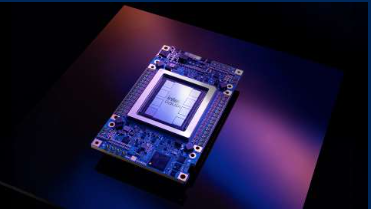Intel has launched a new data center chip, intensifying its competition with AMD.
Intel's latest data center chip, codenamed [insert codename], promises significant improvements in performance and efficiency compared to previous generations. With advancements in architecture and manufacturing processes, Intel aims to address the growing demand for high-performance computing solutions in data centers.
This move from Intel comes as AMD continues to gain ground in the data center market with its EPYC processors, offering competitive performance and cost-effectiveness. With the release of its new chip, Intel is positioning itself to maintain its dominant position in the data center space and counter AMD's growing presence.

The competition between Intel and AMD in the data center segment is expected to intensify further as both companies strive to innovate and meet the evolving needs of cloud computing, artificial intelligence, and other data-intensive applications.
According to data from industry analysis firm Mercury Research, Intel's share of the x86 chip data center market has declined by 5.6 percentage points over the past year, falling to 76.4%, while its main competitor, AMD, has increased its market share to 23.6%. This trend undoubtedly poses a serious challenge for Intel, hence the release of the sixth-generation Xeon chips is seen as a crucial step for Intel to rejuvenate its data center business.
The new generation Xeon processors are divided into two main models: one is a high-performance version aimed at handling complex artificial intelligence models and tasks that demand high computing power; the other is an "efficiency" model designed as a replacement for the older generation chips, focusing on applications such as media, website, and database computing. Intel CEO Pat Gelsinger introduced that the new processors have achieved the goal of "performance improvement and power consumption reduction".
Additionally, Intel also announced information about its new generation laptop chip, Lunar Lake. It is reported that the chip reduces power consumption by 40% and integrates a more powerful AI processor, with shipments planned for the third quarter of this year.
In terms of AI accelerators, Intel stated that the Gaudi 3 accelerator kit, which includes eight AI chips, is priced at approximately $125,000, representing an increase from the previous generation Gaudi 2 priced at $65,000. However, Intel emphasized that its price still has a significant advantage compared to competitors' products. According to estimates from supplier Thinkmate, a similar server system equipped with eight Nvidia H100 AI chips may cost over $300,000.